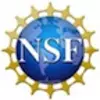Instructor Stories
This module has been successfully used in introductory geoscience courses at a community college, a comprehensive university, and a research university.
If you are interested in online teaching, the bottom of the Summary for each unit includes guidance for our best estimation of how online-appropriate that unit is. The InTeGrate project also has advice on using similar resources in Online or Hybrid Courses.
Webinar about teaching this module: Using Data to Teach About Societally Important Questions
Becca Walker: Introduction to Oceanography (OCEA 10) at Mt. San Antonio College: Introduction to Oceanography is a general education community college course that satisfies Mt. SAC's physical science general education requirement. The majority of students who enroll in the course are non-science majors. Becca's fall 2014 section of the course was linked, meaning that all 23 students in the course were enrolled in lecture and lab. The course met 2 times a week for 3 hours per class meeting.
Leigh Stearns: Environmental Geology (GEOL 351) at University of Kansas: This is an introductory geoscience course. There are no prerequisites and no assumption of an existing knowledge of geology, although students are expected to be able to perform basic mathematical calculations. This course presents environmental topics in geology that have an impact on humans, such as natural hazards (earthquakes, volcanoes, floods), resource extraction (mining, fossil fuels, groundwater pumping), and pollution (climate change, water quality).
Keegan Fengler: Introduction to Physical Geology (GEOL 101) at Central Washington University: This introductory course emphasizes the origin and nature of the common rocks and continually changing features of Earth's crust. The majority of students in this course are non-science majors who are fulfilling their natural science requirement. This course is also a requirement for all geological science majors.


![[creative commons]](/images/creativecommons_16.png)










